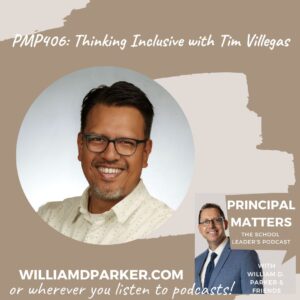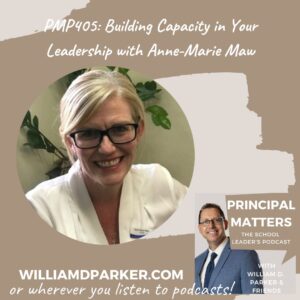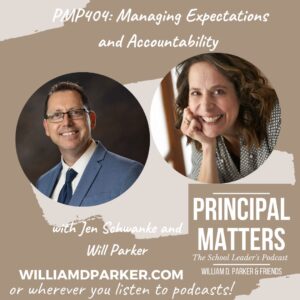I grew up in West Tennessee where my parents raised the six of us on a small farm in the middle of nowhere.

Gravel roads, winding creeks, swampy bottoms, large fields, and rambling woods were my playgrounds. We were so rural that when Daddy built the basement home we lived in, for a while we had no electricity or running water.
Eventually, we had both, but we lived for years without a telephone or even a mailbox. Because my father rejoined the military when I was in high school, we moved to New York and Virginia for a few years, but we returned to our Tennessee home where my parents still live today.
When I was seven years old, we had a litter of pigs, and my father let us bring the runt into the house to bottle-feed. My sister, who was four at the time, affectionately named him Bacon.
Bacon grew to be the strongest and smartest pig in our lot. He also became an escape artist. In fact, he partnered up with another farm animal, a goat we called Billy Butt. Billy Butt earned his name because he would butt anyone who was near him. One day, he made the mistake of butting my mother down a hill when she was fetching water from the spring. Later my father traded him for one-eyed shetland pony named Old-Faithful. We called him that because no matter how many times you rode him, you’d always end up being thrown to the ground. But I digress…
Before we were rid of Billy Butt, Bacon and the goat made a grand escape one day from the farm. They broke out of their fencing and made it all the way to Roger Teague’s place. Roger came and told my dad that he’d locked them in separate stalls in his barn, but when Daddy arrived, and they opened the stall where Bacon was kept, he had escaped again. When they opened the stall where Billy Butt was held, there was Bacon who had squeezed in to keep company with his goat friend.
It wasn’t long after that when Billy Butt made his rush at my mother, and Daddy traded him. Now, Bacon was on his own in his escapes.
We had a large pig lot with a woven wire fence surrounding it, and my father ran an electric wire along the bottom to add additional incentive for Bacon to stay in. But one day, Bacon rooted up so much dirt onto the wiring, that he shorted out the charge, pushed his way through the fencing, and was off.
This time he made it into the peanut field of a neighboring farmer, Slick Holland. When Daddy brought Bacon home this time, he warned him that if he escaped again, he was going to shoot him.
A few days later, Slick Holland pulled his truck into our gravel drive. A cloud of red dirt surrounded his truck as he stepped out. I was playing in the yard and could see him in the distance as he met my father. Slick was waving his arms and was obviously upset. Soon my father turned from him and walked into the house. When he came out again he was carrying a .22 rifle and a butcher knife.
We loaded up and drove to Slick’s farm. When we arrived, Bacon was in Slick’s lot with his own herd of pigs. I was too short to see over the fence, but I could look through the woven wires.
Daddy leaned his rifle across the top rail of the fence for a good aim, but Bacon was huddled up in the back among the other pigs. My dad, who was a crack-shot with a gun, always killed a farm animal with one shot between the eyes.
“I can’t see his eyes,” Daddy said. “So I can’t get a good shot.”
Slick’s son, Jimmy was standing there and said, “Just shoot him behind the ears, J.D., and you’ll kill ‘em just the same.”
“I’ve never shot one behind the ears,” Daddy replied. “But I’ll try.” He rested his gun quietly on the railing and squinted through his glasses.
Soon the sharp crack of the .22 rifle sounded, and I saw Bacon hit the dirt. But what happened next was something I wouldn’t have believed unless I had seen it with my own eyes: Bacon’s legs began to jerk and kick, and suddenly he was up and running straight for the fence. When he hit it, he began to crawl all the way to the top, he hoisted himself across the railing, landed on the other side, and was off across the field beyond.
By this time, everyone was shouting and running, and before long, Daddy had caught up with him and it was finally all over.
A few days later, my mother made us a big breakfast country breakfast. When my grandmother came in for a morning visit, she saw my sister’s plate and commented, “Good morning, Kathryn. That sure is a good plate of eggs and sausage you’re eating.”
“No, Grandma,” Kathryn replied. “I’m eating eggs and Bacon.”
“Honey,” Grandma said patiently, “That is eggs. And that is sausage.”
“No, Grandma, that is Bacon.”
“Sweetheart,” Grandma explained again, “That meat is called sausage.”
“No ma’am,” Kathryn explained, “I am eating Bacon the pig!”
Why Our Stories Matter
When I went to school, I did not know it, but my siblings and I would have been considered at-risk by today’s standards. We qualified for free and reduced lunches. I was pulled out of class by a reading specialist during elementary to help me catch up to my grade-level. I had no idea I required assistance, but as I look back now through the eyes of an educator, I realize I was a Title I student whose family squarely fell into a demographic category allowing my school to receive federal assistance.
Thankfully, all I knew was that I was loved and cared for at home and at school.
I was not the kind of student who caused too much trouble. I did receive my fair share of discipline, and I’m not sure any teacher would have predicted I would become a teacher or a school principal.
Not only have I had the privilege to do both, I found my passion in doing so. And none of this would have been possible had my parents, teachers and school leaders not invested in me:
- People like Rita Owen, my Language Arts teacher who encouraged me to take my first advanced class when she recognized I had become a good reader.
- People like Coach Desmond Adams, who taught me as much about life as he did about mathematics.
- People like my principal, Charles Cate, who administered corporal punishment when I deserved it, but also cheered me on at every one of my basketball games.
- People just like you who take the time to teach, mentor, coach, correct, and guide.
All the small successes we experience are really the result of the time and energy others have invested in our learning.
I have a friend who has been an assistant principal for ten years. When she tells her policeman father about her days at school, he will often shake his head and say, “Gee, and you do all that without a gun?” None of us are exempt from the overwhelming feelings that come with the tasks of our callings.
That’s why I want to give you three reminders to hold onto–especially as the demands of school grow more pressing this year:
1. You are courageous.
Courage is not just bravely facing difficult tasks. Courage happens when you face fears and still do what’s right. Thank you for facing the risks involved in helping others even with the possibility of getting it wrong. Thanks for moving ahead anyways–to do what is right for students and your school community.
2. You are not alone.
Good leadership really only happens when you realize the amazing amount of support and teamwork necessary to really serve well. Others have invested in you to bring you to the place you are in leadership, and you are surrounded with incredible team members to pull off the tasks of serving well. And it’s encouraging to remember we are a part of a special fraternity of brave men and women who are helping children in every community.
3. Thank you.
On behalf of the students whose lives you directly and indirectly touch everyday, thank you. For the countless lives you’ve given the tools, resources, security, and opportunity to learn and grow, thank you. From someone who was one of those kids who struggled and didn’t even understand what it at the time, thank you for taking time to prepare me anyway.
Conclusion
My story really isn’t that unique. Just like you, I have benefited from the talents, expertise, and service of others. I’ve spent the past twenty-one years as an educator, and each year I am learning more to appreciate the privilege we have of serving others. So today as you’re reaching your school community, don’t underestimate the part you’re playing in the lives of kids just like I was.
Now It’s Your Turn
What are some ways others have invested in you to help you reach your goals in life? What are some ways you can you “pay-it-forward” today with the students and team members in your school community?
Sign-Up For Free Updates and Ebook
When you enter your email address below, you will automatically receive my newest posts and a free Ebook, 8 Hats: Essential Roles for School Leaders. Let’s keep learning together!
Subscribe for free weekly updates and receive free e-book!
(function($) {window.fnames = new Array(); window.ftypes = new Array();fnames[0]=’EMAIL’;ftypes[0]=’email’;fnames[1]=’FNAME’;ftypes[1]=’text’;fnames[2]=’LNAME’;ftypes[2]=’text’;}(jQuery));var $mcj = jQuery.noConflict(true);
Principal Matters–The Book!

School leaders are very busy, so each of the twenty-four chapters is designed as a quick-read and followed with take-action questions for follow-up or reflection. If you want practical ideas on understanding your purpose, managing school teams, dealing with challenges, and leading with courage, action, motivation, and teamwork, go HERE to pick up a copy for you or your team.


